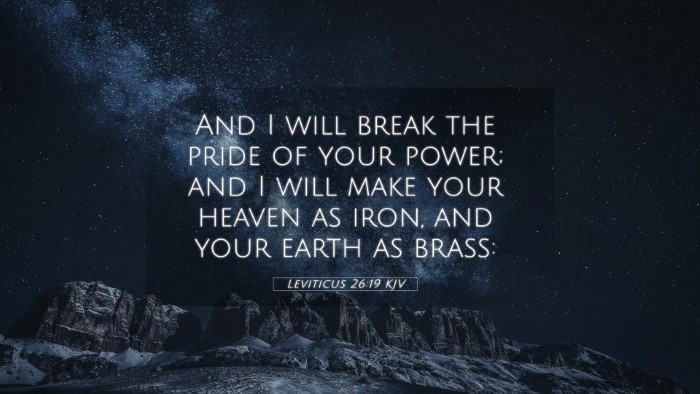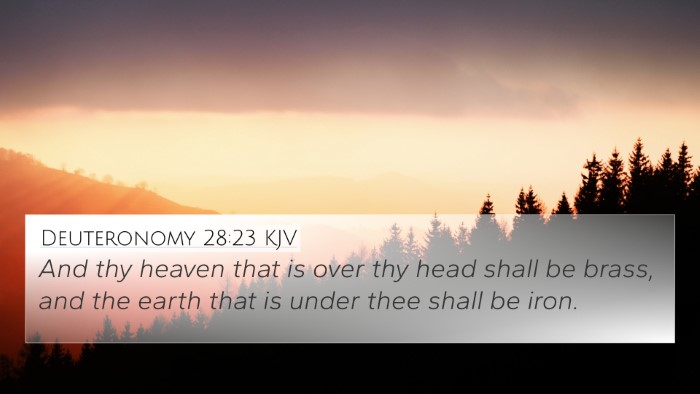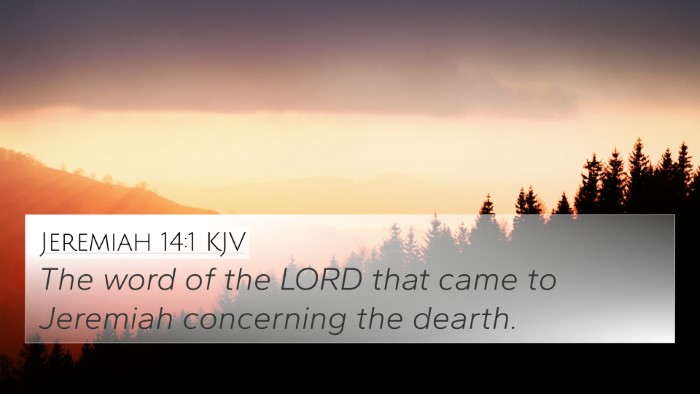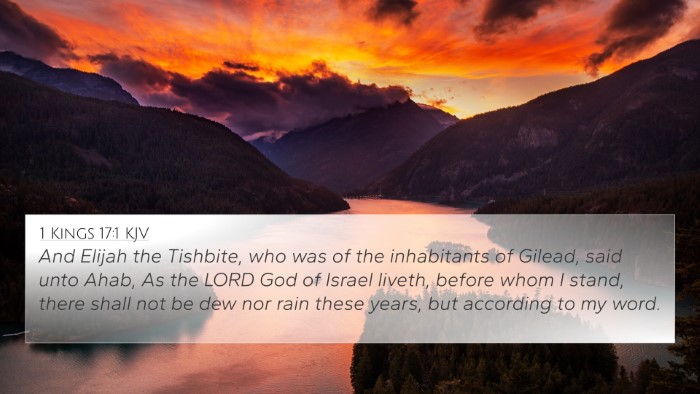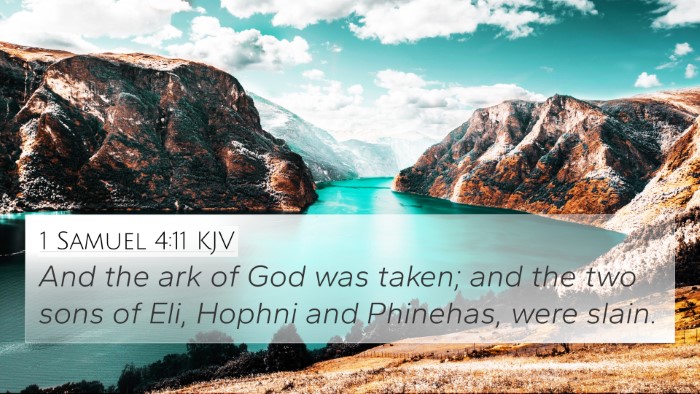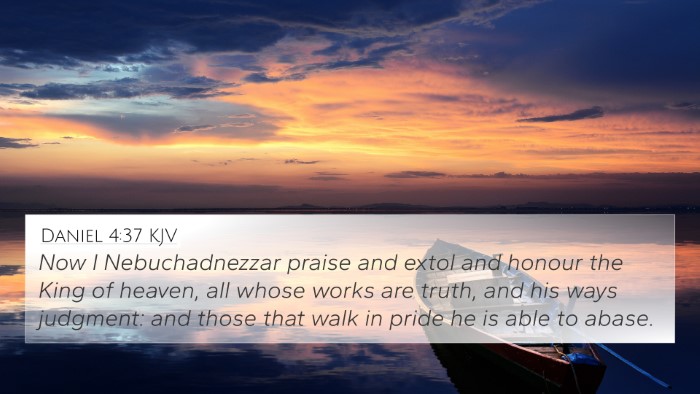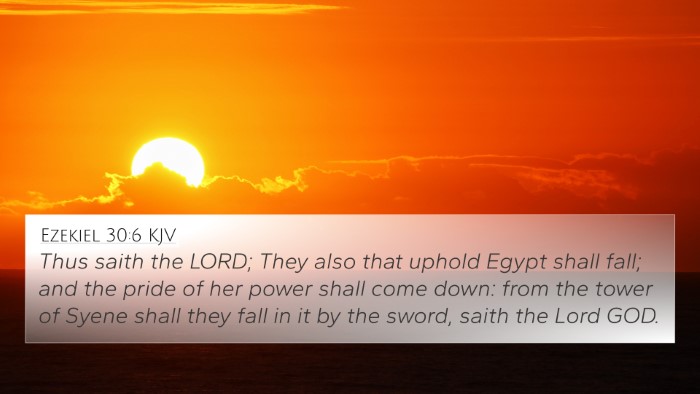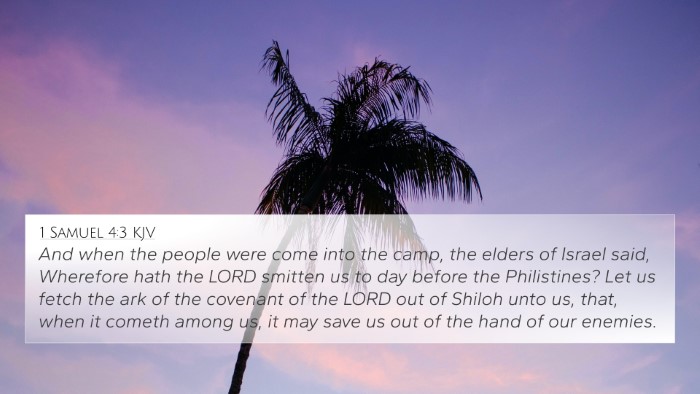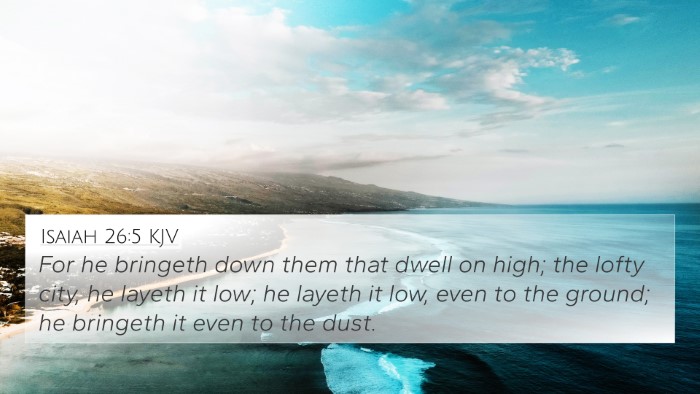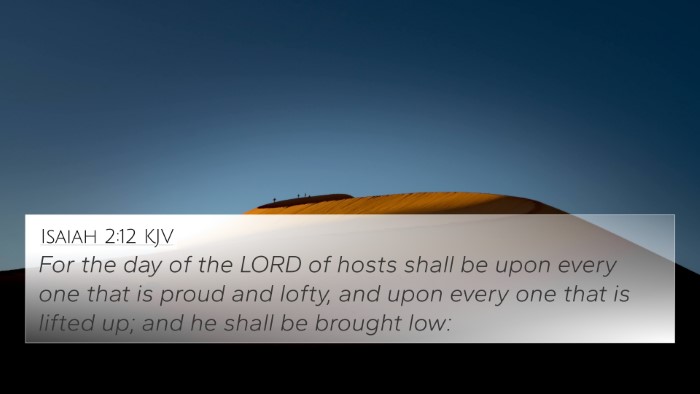Understanding Leviticus 26:19
Leviticus 26:19 states: "And I will break the pride of your power; and I will make your heaven as iron, and your earth as brass."
This verse serves as a solemn warning from God to His people regarding the consequences of disobedience and the rejection of divine authority. It emphasizes the significance of humility and dependence on God for sustenance and life.
Insights from Public Domain Commentaries
In analyzing this verse, three prominent commentaries offer rich insights:
- Matthew Henry: Henry emphasizes God's sovereignty and power to humble nations. He discusses how pride leads to a downfall and highlights the seriousness of turning away from God's commandments, stating that such behavior invites severe consequences.
- Albert Barnes: Barnes interprets the phrase “break the pride of your power” as an act of divine judgment. He notes that when people become prideful, they lose sight of their reliance on God, and thus He may withhold His blessings, leading to a state of desolation.
- Adam Clarke: Clarke elaborates on the imagery of the heavens becoming iron and the earth as brass, symbolizing a lack of fertility and productivity. He connects this to the overarching theme of God withholding blessings due to pride and rebellion.
Thematic Connections
Leviticus 26:19 connects deeply with themes of humility, judgment, and dependence on God. The following contextual and correlating verses highlight these themes:
- Deuteronomy 8:16-18: Reminds Israel to remember the Lord as the source of their blessings, stressing the importance of gratitude and humility.
- Proverbs 16:18: "Pride goes before destruction, and a haughty spirit before a fall," illustrating the peril of pride discussed in Leviticus.
- Isaiah 2:12: Speaks about the day of the Lord coming upon all who are proud and lofty, reinforcing the theme of divine judgment on pride.
- James 4:6: "God opposes the proud but gives grace to the humble," drawing attention to the necessity of humility in receiving God's favor.
- Hosea 5:15: God indicates that He will return to His place until Israel acknowledges their guilt, reflecting the need for repentance to avoid judgment.
- Jeremiah 17:5: "Cursed is the man who trusts in man and makes flesh his strength," connecting to the warning against self-sufficiency implied in Leviticus 26:19.
- Psalm 138:6: Emphasizes that though the Lord is high, He regards the lowly, linking humility to God's grace.
The Importance of Cross-Referencing Biblical Texts
Understanding Leviticus 26:19 through cross-referencing with other Bible verses adds depth and clarity to its message. As seen in the insights above, various scriptures can illuminate the nuances of God’s principles regarding pride and power:
How to Engage with Scripture
For those seeking to deepen their understanding of Leviticus 26:19, consider these methods:
- Using a Bible Concordance: A concordance allows you to find verses that share themes or words with Leviticus 26:19, enhancing your study.
- Cross-Reference Guides: Utilize guides that provide thematic connections between verses, helping establish a comprehensive view of biblical teachings.
- Cross-Referencing Bible Study: Engage in dedicated study sessions that specifically look at links between scripture passages.
Conclusion
Leviticus 26:19 serves as a poignant reminder of God's authority and the importance of humility. By exploring related scriptures and utilizing cross-referencing tools, believers can appreciate the interconnectedness of biblical principles. This not only enhances personal study but also provides deeper insights into God's character and His expectations for His people.
In sum, the exploration of this verse alongside the insights from public domain commentaries encourages a reflective approach to understanding scriptural teachings. Placing emphasis on humility and dependence on God can lead to a more fruitful spiritual life.

